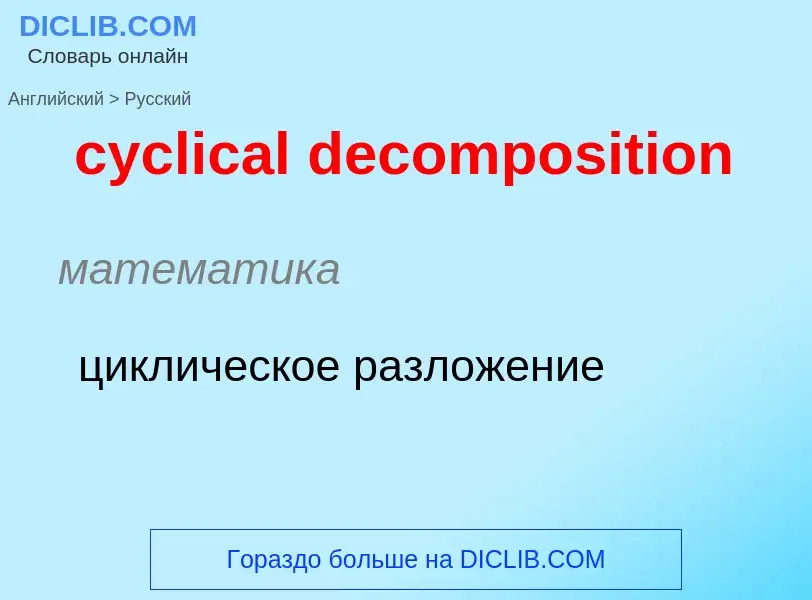Enter a word or phrase in any language 👆
Language:
Translation and analysis of words by ChatGPT artificial intelligence
On this page you can get a detailed analysis of a word or phrase, produced by the best artificial intelligence technology to date:
- how the word is used
- frequency of use
- it is used more often in oral or written speech
- word translation options
- usage examples (several phrases with translation)
- etymology
cyclical decomposition - translation to russian
THEOREM
Lebesgue decomposition theorem; Lebesgue decomposition
cyclical decomposition
математика
циклическое разложение
chemical decomposition
BREAKDOWN OF A SINGLE ENTITY (NORMAL MOLECULE, REACTION INTERMEDIATE, ETC.) INTO TWO OR MORE FRAGMENTS; OPPOSITE OR REVERSE PROCESS OF A SYNTHESIS REACTION
Decomposition reaction; Decompose (chemistry); Chemical degradation; Chemical breakdown; Decomposition product; Decomposition (chemistry)
нефтегазовая промышленность
химическое разложение
decomposition product
BREAKDOWN OF A SINGLE ENTITY (NORMAL MOLECULE, REACTION INTERMEDIATE, ETC.) INTO TWO OR MORE FRAGMENTS; OPPOSITE OR REVERSE PROCESS OF A SYNTHESIS REACTION
Decomposition reaction; Decompose (chemistry); Chemical degradation; Chemical breakdown; Decomposition product; Decomposition (chemistry)
общая лексика
продукт распада
Definition
Decomposed
·Impf & ·p.p. of Decompose.
II. Decomposed ·adj Separated or broken up;
- said of the crest of birds when the feathers are divergent.
Wikipedia
Lebesgue's decomposition theorem
In mathematics, more precisely in measure theory, Lebesgue's decomposition theorem states that for every two σ-finite signed measures and on a measurable space there exist two σ-finite signed measures and such that:
- (that is, is absolutely continuous with respect to )
- (that is, and are singular).
These two measures are uniquely determined by and

